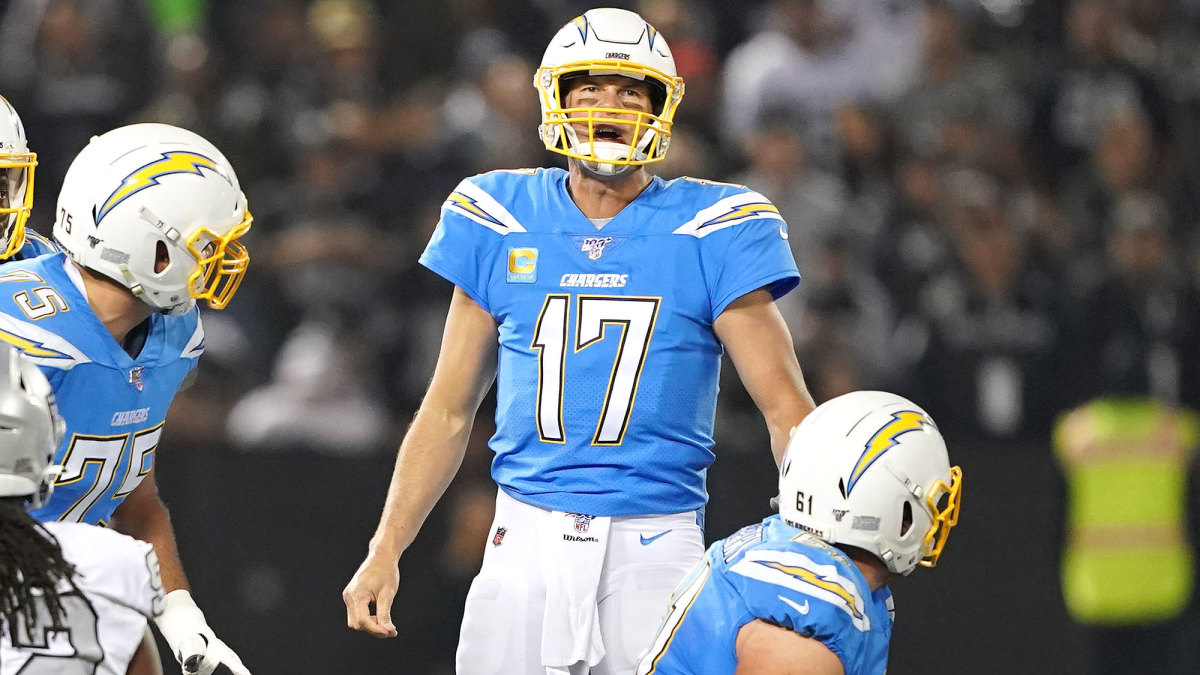Is the NFL Facing Another QB Drought, and What Can Teams Do About It?


Just a few seasons ago, when we were saying goodbye to Peyton Manning and starting to accept the idea that we would one day soon be saying goodbye to Eli Manning, Drew Brees, Ben Roethlisberger, Philip Rivers and Tom Brady, the league was also struggling to develop a swath of young starters to take their respective places.
The quarterback drought was a real thing. The Jaguars built a team that, pretty successfully, operated without one for the better part of two seasons. It was a fascinating bit of foresight, or maybe a brilliant momentary adjustment given the way the wind was blowing.
But then offenses everywhere got a lift. The ease with which teams could steal creative, easy-to-install schemes from nearly every walk of football life became too tempting to ignore. The willingness to explore the world outside of a milquetoast pro-style offense also grew as the lines between what we consider professional football and everything else began to blur.
All of a sudden, Jared Goff was fine—great, even. Mitchell Trubisky was a Pro Bowl quarterback. Players who once served as a harbinger for the bleak future we were inheriting were now the face of its promise.
Problem solved, right?
Except for the fact that defenses catch up—and this year has proved that. The lowest seven spots on ESPN’s total quarterback rating rankings are all passers aged 30 and younger save for the perpetually ho-hum Andy Dalton (including Goff and Trubisky). The Rams’ mega-extension of Goff looks dicey at best. Trubisky suspiciously sat out the Bears’ final drive against the Rams with an injury designation on the team’s final offensive series last week.
Unless a franchise plucked one of the good QBs or bent the organization to align with a radical, forward-thinking shift in scheme (or both), then a team might be feeling the same panic felt about the future of the league four years ago.
It’s interesting to think about given the current state of play. Consider a few thoughts:
• I count nine teams—Dolphins, Patriots, Chargers, Broncos, Bengals, Titans, Bears, Panthers, Buccaneers—who could be in need of premium starting quarterback talent next year. While departures from one team could aid another (who knows, maybe Tom Brady plays a year in L.A. or Cam Newton heals up and signs with the Broncos) there will be some legitimate vacancies in 2020. Compare that to the start of the 2018 season, when nearly every team’s quarterback situation seemed settled.
• The incoming pipeline may not quite be what we expected, highlighted by the uncertainty surrounding Tua Tagovailoa’s serious injury.
• The odds that nearly every “offensive guru” head coach—hired in the wake of this past offseason’s panic—pan out are extraordinarily low, which further impacts an incoming class of moldable quarterbacks entering a league under different circumstances than they might have two years ago.
So what happens from here?
In my wildest imagination, more teams embrace what the Ravens have done in Baltimore by investing in the types of players that, for some ridiculous reason, the league continues to generalize, overlook or undervalue. If you look at the momentary rise of Gardner Minshew in Jacksonville or Kyle Allen in Carolina, maybe the answer lies in viewing the quarterback position in a different way altogether. Something less permanent and more expendable, situational. As salaries skyrocket at the top end of almost every position, quarterbacks could end up being one of the most strategically undervalued assets in the coming years.
Maybe owners start interviewing interesting coaching candidates from diverse backgrounds who can offer more than just a familiar whiff of whatever successful team they’re arriving from.
The fear is that the league continues to operate ignorant of the knowledge that, beyond the cyclical nature of the league, there might be a real problem here.
* * *
MUST-READS AT SI.COM: Has our divisiveness as a football-loving society bled into the NFL’s mammoth infrastructure, making it impossible for positive change? ... POWER RANKINGS. … Notes on the Myles Garrett appeal. … The Raiders are gonna make the damn playoffs aren’t they? ... What happens next for Colin Kaepernick?
* * *
THE BEST OF AROUND THE INTERNET: Get a load of this dude who thought he could steal tens of millions of dollars from the Sacramento Kings to become a house flipper. … How are all 32 first-round picks doing 11 weeks into the season? ... Apparently the money is on a Patriots-Saints Super Bowl. … When is the world naked bike ride coming to Portland, you ask?
* * *
THE KICKER: My goal is to one day appear as relaxed and at ease as Rick Rubin.
Question or comment? Email us at talkback@themmqb.com.
